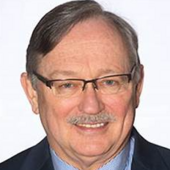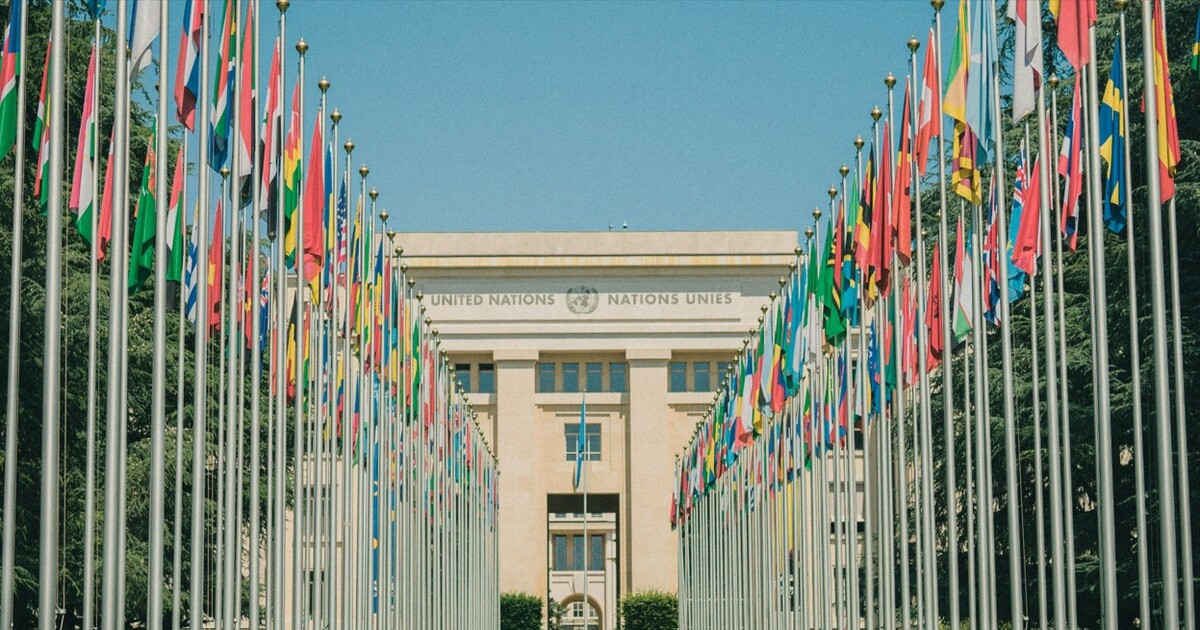The Failure of “Never Again”?
The “Never Again” promise is rooted in the universality of human dignity – an assertion that Musk and Vance vehemently disagree with.
November 17, 2025

A Strategic Intervention Paper (SIP) from the Global Ideas Center
You may quote from this text, provided you mention the name of the author and reference it as a new Strategic Intervention Paper (SIP) published by the Global Ideas Center in Berlin on The Globalist.
On April 11, 1945, the 104th U.S. Timberwolf Infantry Division liberated the Mittelbau-Dora Concentration Camp in Nordhausen, Thuringia. Among the soldiers was my father, Gordon Bindenagel.
As he and his fellow GIs moved into the subcamp of Buchenwald, they encountered a camp where slave laborers had been forced to assemble the V2 rockets of Wernher von Braun and his accomplices.
My father and his peers found dead and dying people piled on top of each other. Of the 60,000 prisoners sent to the Mittelbau-Dora concentration camp and related camps, at least 20,000 died.
The experience of extreme human degradation
Although the members of my father’s unit had been warned about the existence of a prison camp, they could not have foreseen the inhuman atrocities they would witness, including extreme human degradation.
The horrors at Nordhausen were committed by criminal leaders who incited hatred and disregarded human dignity. These perpetrators had sunk to depths of human degradation beyond imagination.
They committed nothing less than organized crimes against civilization and humanity, for which swift, specific and appropriate punishment should be meted out to all those responsible. The survivors described Dora as the most hellish of all concentration camps.
Loudly chanting “Never Again” for the first time
On April 19, 1945, just days after American troops liberated Buchenwald and its sub-camps, survivors gathered in what was once the camp’s roll call square. They held the first memorial service for those who had died and dedicated a temporary memorial in their honor.
Participants vowed in multiple languages to fight together against the foundations of Nazi crimes. According to former Buchenwald prisoner Heinz Brandt, those present loudly chanted “Never Again.”
The survivors of Buchenwald immediately sought to translate their chants of “Never Again” into action. They issued what became known as the Buchenwald Manifesto:
“Through this struggle (despite the daily threat of a miserable death in the concentration camp), we were given the opportunity to gain human, moral and spiritual experiences that are impossible under normal circumstances.”
The manifesto continues:
“In view of the shadow cast by our bloodied comrades who died at the hands of Hitler’s executioners, and in view of our special responsibility for the future of our children, we therefore feel justified and obliged to tell the German people what measures are necessary to save Germany from this historically unprecedented collapse and to restore Germany’s respect and trust in the community of nations.”
A clear statement against tyranny and war
Ever since the survivors of Buchenwald first chanted “Never Again,” these two words have served as a clear statement against tyranny and war, in Germany and around the world.
The two words are uttered every year on May 8, commemorating this day, which marks the unconditional surrender of the German Wehrmacht and Germany’s liberation from National Socialism.
“Never Again,” repeated in commemorative speeches and memorials to honor those murdered by Nazi Germany and its accomplices, serves as a reminder of the commitment to prevent tyranny and war.
And yet, when I was recently invited to speak at the 80th anniversary of the liberation of the Mittelbau-Dora Concentration Camp, I started asking myself whether our collective commitment of “Never Again,” borne out of the Buchenwald manifesto from all those years ago, has failed spectacularly.
“Never Again” no longer taken seriously?
The number of liberal democracies worldwide has been declining, and the radical and extreme right has been gaining strength. Disinformation and demagoguery are once again tearing apart the fabric of our res publica and the bonds that have held us together.
Reason enough to question what had gone wrong in our efforts to uphold our commitment to “Never Again.”
For decades, calls for “Never Again” seemed to be taken seriously. In the late 1940s, the commitment to “Never Again” inspired the creation of a new Germany committed to the inviolability of human dignity and requiring all government authorities to respect and safeguard it.
The core element of the German Constitution
The first sentence of Article 1 of the 1949 Basic Law for the Federal Republic of Germany, West Germany’s constitution, “Die Würde des Menschen ist unantastbar” — indeed became the core principle of modern Germany.
Since 1949, the German people have committed themselves in this article to “acknowledge inviolable and inalienable human rights as the foundation of every community and of peace and justice in the world.”
“Never again” and Western ties
For the leaders of the new Federal Republic of Germany, “Never Again” also required building strong ties with the West, based on Enlightenment ideals.
Germany’s first post-war Chancellor, Konrad Adenauer, led the nation in establishing West Germany’s role in Europe through connections with the West (Westbindung), promoting democracy, freedom, and the rule of law. Westbindung strengthened West German relations with the United States and democracy, which have benefited all of Germany ever since.
Beware any rosy picture
We should, of course, resist any temptation to present a rosy picture of how successive postwar generations confronted the past to build a new future based on human dignity.
Anyone observing Germany’s journey to earn international respect over the past seven decades has seen its complexity.
From the administrations of Konrad Adenauer to Helmut Kohl, West Germany’s political leaders intensely debated the nature of German guilt.
Their discussions revealed the government’s indecisiveness about the difference between individual and collective responsibility. It was not until 1973 that West Germany’s conversations about its Nazi past and its relevance today moved beyond academic circles and into the public arena.
The effect of the “Holocaust” miniseries on TV
Public awareness of how Germans were viewed historically, however, grew significantly in 1979 after the airing of the U.S. television miniseries “Holocaust” in Germany.
Later, the West German historians’ Dispute of 1986/1987 (Historikerstreit) became a political issue as leading intellectuals aimed to free the German national consciousness from the lingering influence of a heavy past and to develop a new sense of national identity.
East Germany’s attempt to exit from responsibility
East German officials and historians, meanwhile, until unification, marginalized the Holocaust and argued that West Germans bore sole responsibility for the Nazi tragedy and the Holocaust.
However, after a peaceful revolution in East Germany led to German unification, the democratically elected East German Prime Minister Lothar de Mazière, in his government declaration on April 19, 1990, addressed the East Germans’ responsibility for the Holocaust and the Nazi dictatorship.
He said, as a free government and a free parliament, we bow our heads to the victims of fascism. We remember the victims of the concentration camps and the war.
Problems in post-unification Germany
However, all was definitely not well in post-unification Germany. In the 1990s, the struggle in united Germany between respect for human dignity and hatred of immigrants, racism and anti-Semitic violence raised concerns about the rise of far-right populism’s disregard for the Grundgesetz commitment to the inviolability of human dignity.
Controversies included the murders of Germans of Turkish heritage by the German terrorist group NSU and the hatred directed at Muslims, Jews and immigrants. These incidents, among others, cast doubt on the Holocaust and Nazi crimes and the call for “Never Again.”
No longer moving in the right direction
And yet, things seemed to be moving in the right direction for a long time, until they did not.
The post-1990s understanding of “Never Again,” both in Germany and worldwide — during a period when Holocaust museums were built and Holocaust remembrance days were established almost everywhere — was that as long as new generations were exposed to and familiarized with the horrors of the past, they would be inoculated against the lure of extremism.
Yet today, the youngest generation is the most politically extreme. In the German context, some politicians appear to be testing whether German identity and the legacy of the Holocaust remain inseparable.
This includes leading figures from the Alternative for Germany (AfD), who have described the memory of the Holocaust and the Nazi dictatorship as a guilt cult (Schuldkult) and the Nazi regime as nothing more than “bird shit” (Vogelschiss) in a thousand years of German history.
Assaulting the moral foundations of the post-Holocaust world order
But this is not just an attack on Germany’s Erinnerungspolitik. This attack is part of a much larger assault on the moral foundations of the post-Holocaust world order.
Those foundations are based on the belief that human dignity is universal, applying to all of humanity. They are also rooted in the belief that empathy is the bedrock of human dignity.
These beliefs are now openly challenged. Elon Musk has questioned empathy, stating that it is the fundamental weakness of Western civilization.
Musk and Vance: On the offense (and offence)
Meanwhile, U.S. Vice President J.D. Vance has offered an interpretation of the Christian principle of “ordo amoris” (order of love) that turns it upside down, essentially arguing that one’s own tribe deserves more dignity than the rest of humanity.
What we are experiencing is an effort, led by Vance and Musk, to replace the moral foundations of the post-Holocaust world order with an entirely new worldview.
It is not as if Musk or Vance were endorsing the killing fields of Nazi Germany – quite the opposite. However, they are drawing very different lessons from history based on a tribal view of human dignity.
Casting supporters of universal ideas of human dignity as agents of tyranny
In the process, very senior Trump administration officials stunningly see the defenders and supporters of universal ideas of human dignity as agents of tyranny.
For example, U.S. Secretary of State Marco Rubio supported the AfD after the Federal Office of the Protection of the Constitution classified the party as “extremist.”
Rubio stated on social media that the new classification is “tyranny in disguise.”
Rubio thus challenged the Federal Office of the Protection of the Constitution’s conclusion that the AfD is a threat to Germany’s “free democratic order” and “disregards human dignity” — particularly through “ongoing agitation” against refugees and migrants. Similarly, AfD’s leader Alice Weidel has called her political opponents the true Nazis.
The U.S.-led collapse of the “Never Again” promise
What we are witnessing is the U.S.-led collapse of the “Never Again” promise made by survivors of Buchenwald and other Nazi camps, which was rooted in their core belief in the universality of human dignity.
Maybe our collective mistake has been to assume that simply exposing people to the horrors of National Socialism would prevent the world from falling back into new barbarism.
Listing our mistakes
Our mistake was not giving enough attention to the connection between human dignity and empathy in our activities, and we also failed to see that we were witnessing the decline of what might be called pre-political values, everyday virtues or cardinal virtues.
As a result, we didn’t allocate enough resources to strengthening resilience against attacks on the moral foundations of the post-Holocaust world order.
We didn’t realize that these were the measures the Buchenwald manifesto urged to prevent the unprecedented collapse, tyranny and war from happening again.
Remembrance is complex
Hannah Arendt, writing on totalitarianism, states, “Once you’ve decided that some people’s lives are not important or not as valuable as others, you are already walking into trouble.”
It is the rise of far-right authoritarianism that leads to the death of human empathy, causing us to walk into trouble. It is said, in a quote attributed to her, that “the death of human empathy is one of the earliest and most telling signs of a culture about to fall into barbarism.”
Historically, empathy has driven progress. Its decline therefore signals dangerous societal shifts. Empathy and compassion for others have supported humanity and advancement.
When people lose the ability to care for others, injustice flourishes. The erosion of empathy appears in many ways, including dehumanization, indifference as well as political, social and emotional polarization.
We are facing a colossal failure of “Never Again”
Remembrance involves responsibility and respect for human dignity, ensuring that hatred does not lead to war again — never again.
The duty to empathize with others and oppose hatred applies to all of us, in Germany, the United States and around the world.
The erosion of empathy and pre-political values signals a warning sign that we are facing a colossal failure of “Never Again.” We must never forget: The most horrifying example of losing empathy is the Holocaust.
Today, in the treatment of migrants, Muslims and Jews, we hear echoes of Nazi propaganda that systematically dehumanized Jews, Roma, LGBTQ+ people and other marginalized groups.
Confronting evil
The lack of empathy—then as now—leads ordinary citizens to join in atrocities or at least silently accept them. The decline of “Never Again” begins slowly, fuelled by rhetoric, laws and a culture that normalizes cruelty.
Although we seem to be nearing the end of “Never Again” and the return of new barbarism, it is not too late. We can still change course. We must prevent the persecution of others from happening again.
Only by confronting evil can we become better people and thus stop wars and uphold human dignity. Those who do not confront the inhumanity that people inflict on each other and ignore the warnings from survivors of Buchenwald risk repeating the past.
The memory of the horrors of dictatorship, war of annihilation and genocide compels us to speak out against inhumanity and injustice and to ensure that evil does not triumph.
Conclusion
“Never Again” means learning from and heeding the lessons of Buchenwald, Mittelbau-Dora, and other sites. Forgetting the hatred from which evil emerged leads us down a dangerous path of disregard for human dignity.
In the eyes of the founders of National Socialism, hatred of others justified the brutal treatment of prisoners in concentration camps. Today, politicians who incite hatred against others — such as immigrants, Muslims, Jews and other groups—can escalate hostility and lead people to commit new atrocities.
Political leaders must never again direct their followers down the hellish path represented by concentration camps like Mittelbau-Dora. We know how and where this story ends.
I appeal to all of us—including my fellow Americans—to see learning not as a source of shame and guilt, because rejecting it fuels anger, breeds bitterness and pushes people toward new atrocities.
We understand how hateful ideologies and tribal views of human dignity have embroiled civilized societies in world wars.
That is why we must resist any policy that incites hatred and leads to a hierarchy of human dignity. We must not stay silent in the face of inhumanity and injustice. We must recognize the humanity in every person.
And we need to find new political and social solutions to strengthen the moral foundations of the world order following the Holocaust—and to restore those moral principles.
Takeaways
When I was recently invited to speak at the 80th anniversary of the liberation of the Mittelbau-Dora Concentration Camp, I started asking myself whether our collective commitment of “Never Again" has failed spectacularly.
From the administrations of Konrad Adenauer to Helmut Kohl, West Germany’s political leaders intensely debated the nature of German guilt.
East German officials and historians, meanwhile, until unification, marginalized the Holocaust and argued that West Germans bore sole responsibility for the Nazi tragedy and the Holocaust.
What we are experiencing is an effort, led by Vance and Musk, to replace the moral foundations of the post-Holocaust world order with an entirely new worldview.
It is not as if Musk or Vance were endorsing the killing fields of Nazi Germany — quite the opposite. However, they are drawing very different lessons from history based on a tribal view of human dignity.
Very senior Trump administration officials stunningly see the defenders and supporters of universal ideas of human dignity as agents of tyranny.
What we are witnessing is the U.S.-led collapse of the “Never Again” promise made by survivors of Buchenwald and other Nazi camps, which was rooted in their core belief in the universality of human dignity.
Maybe our collective mistake has been to assume that simply exposing people to the horrors of National Socialism would prevent the world from falling back into new barbarism.
The erosion of empathy appears in many ways, including dehumanization, indifference as well as political, social and emotional polarization.
The lack of empathy — then as now — leads ordinary citizens to join in atrocities or at least silently accept them.
A Strategic Intervention Paper (SIP) from the Global Ideas Center
You may quote from this text, provided you mention the name of the author and reference it as a new Strategic Intervention Paper (SIP) published by the Global Ideas Center in Berlin on The Globalist.


